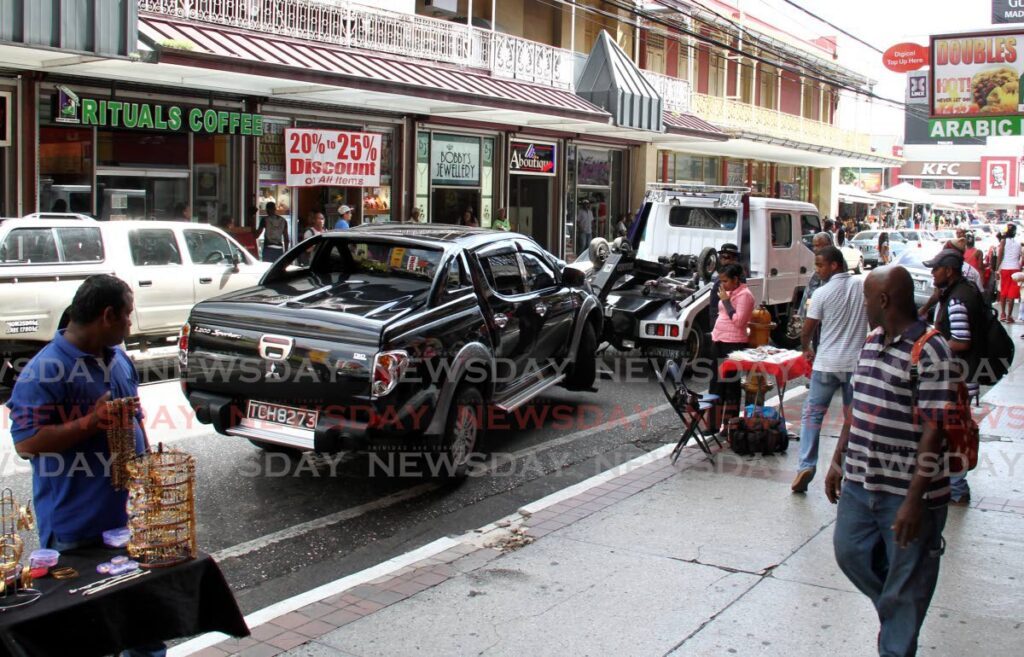Return of the wrecker

Four cars were wrecked in the capital city soon after the return of forcible towing, when the removal of illegally parked vehicles began on May 29. Two of them belonged to police officers.
There had been a long period of leniency, with wrecking sensibly halted during covid restrictions, then continuing for more than three years. In San Fernando, a threat to wreck vehicles to enforce social distancing was quickly dropped in April 2020, as was a plan to resume it in Port of Spain in April 2022.
In August 2023, facing traffic resulting from careless parking in Tobago, head of the police Tobago Division ACP Collis Hazel promised an aggressive return to wrecking to clear up Scarborough traffic, particularly around the ferry docks.
The forcible removal of vehicles is the most manpower-intensive solution to parking-related traffic problems in TT city centres, but more elegant solutions haven’t been effective.
Clamping an immobilising boot to a badly parked vehicle does nothing to solve the problems it’s creating, and ticketing needs to be ramped up to become more efficient than it has proved so far.
Illegal parking carries a fine of $1,000 and three demerit points. Parking tickets, with a cumulative impact on drivers through the demerit system, should be a useful deterrent, but traffic wardens haven’t been ticketing in any decisive way. Is it that they require more training or experience to undertake a responsibility that’s part of their job description?
On the flip side, there clearly needs to be better city planning to provide more legitimate parking space in congested city centres, because there’s nowhere else for the cars to go.
Some aspects of bad parking are wholly predictable. Businesses that have no parking spaces, retail stores with no designated loading zones and unclear or missing signage are parts of the problem.
Illegal parking is also dangerous, creating traffic that blocks emergency vehicles and essential services like fire hydrants.
Parts of the city that have evolved into social zones, like Ariapita Avenue, have been left to sort out their own issues without city planning intervention, provoking anger among frustrated residents.
From time to time, the wrecker seems to have been weaponised as an instrument of tax collection, with officers hauling away vehicles that create no traffic issues for being an inch over parking-zone markers.
The economy of deploying privately owned wreckers brings its own demands, since there must be revenue to pay for these services.
There’s no question that slackness followed when the country returned to normal, but “bad parking equals wrecker” is an unsatisfactory and short-term solution to a problem that needs considered thinking supported by planning that offers a reasonable, realistic alternative.


Comments
"Return of the wrecker"